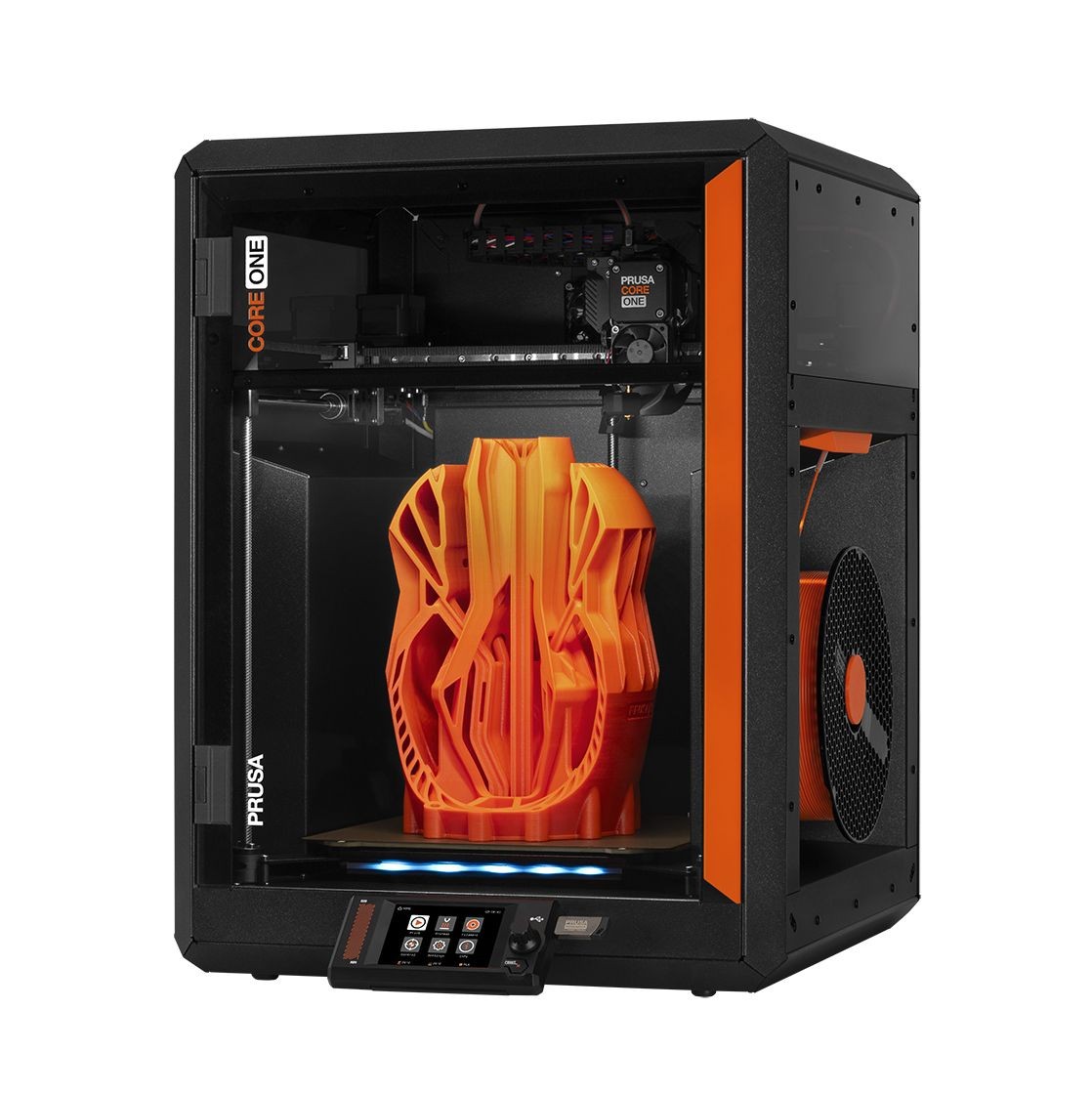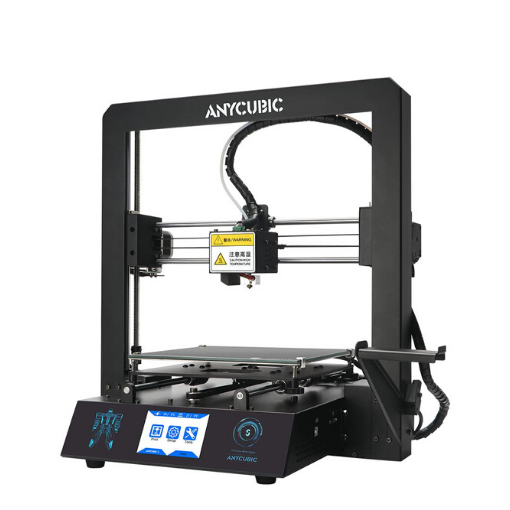Compare Core One vs Mega S
Comparison between the best 3D printers
Choose the best 3D printer at the best price. The cheapest 3D printers are here.
Buy a 3D printer here with 3D Fila.
 |
 |
|
| Model | Core One |
Mega S |
| Printing Material | Filament | Filament |
| Buy Filament for Prusa Core One | Buy Filament forAnycubic Mega S | |
| Estimated price | $1200,00 | $149,00 |
| Manufacturer | Prusa | Anycubic |
| Release Year | 2025 | 2019 |
| Print Volume [mm] | 250x220x270 | 210x210x205 |
| Printer Size [mm] | 385x340x620 | 405x410x452 |
| Weight [kg] | 14 | 14,5 |
| Power Loss Recovery | YES | YES |
| Enclosed printer | YES | NO |
| Bed Leveling | Automatic | Manual |
| Filament End Sensor | YES | YES |
| Bed type | Heated | Heated |
| Power supply system | Direct Drive | Bowden |
| Standard nozzle | 0,4 | 0,4 |
| Maximum Nozzle Temperature [°C] | 300 | 260 |
| Maximum Bed Temperature [°C] | 120 | 110 |
| Maximum printing speed [mm/s] | 500 | 100 |
| Filament holder | YES | YES |
| Camera for supervision | NO | NO |
| Recommended filaments | PLA, TPU, TPE, HIPS, ABS, PETG, WOOD, PC, PA, PVA, ASA | PLA, TPU, ABS, PETG |
| Recommended slicers | Cura, Prusa Slicer, Orca | Cura, Simplify, Slic3r |
| Maximum Resolution [mm] | 0,01 | 0,1 |
| Processor | xBuddy 32 bit | 8 bits |
| Display | Touchscreen 3,5'' | Touchscreen TFT 2,8'' |
| Power Supply | 240 W | 12V / 300W |
| Connectivity | SD | SD / USB |
| Operating systems | Windows, Linux e Macbook | Windows, Mac, Linux |
| Date of registration in the system | 2024-11-27 | 2021-04-15 |
| Release date | 2025 | 2019 |
| Extra features | The Prusa Core One is a CoreXY 3D printer featuring a robust steel frame, a 3.5" touchscreen, and a heated chamber for technical filaments. It offers 360° cooling for improved print quality and supports upgrades from the MK4S model. With a compact design, a print volume of 270x250x220 mm, and compatibility with the MMU3 for multi-color printing, it stands out for its ease of maintenance, precision, and speeds up to 260% faster than the MK3S+. | The Anycubic Mega S offers a printing platform with excellent adhesion, easy removal after cooling. It has a filament sensor for a better experience with flexible materials and a multilingual and intuitive color touchscreen. Assembly is quick, requiring only 8 screws and 3 connections. It has a large build volume (210 x 210 x 205 mm), high positioning accuracy and supports a variety of materials, including TPU, PLA, ABS and wood. It stands out for its solid metal structure, superior stability, high-quality printing with layer resolution of up to 50 microns, Ultrabase for easy adhesion and removal of parts, resumption of printing after power outage, high-quality extruder for flexible filaments, suspended filament support and stable structure that reduces shaking, improving printing quality. |
| Support for multiple colors and materials (AMS and CFS) | YES | NO |
Notes * |
||
| Cost-benefit | 7 / 10 | 7 / 10 |
| Hardware | 5.4 / 10 | 2 / 10 |
| Tela | . | . |
| Print volume | 3 / 10 | 3 / 10 |
| Performance | 4 / 10 | 1 / 10 |
Conclusion |
| In conclusion, the comparison between the Prusa Core One and the Anycubic Mega S clearly highlights distinct advantages and disadvantages dependent on user needs and budget. The Prusa Core One, being a more advanced model released in 2025, offers superior specifications such as a larger print volume, faster maximum printing speeds, automatic bed leveling, and support for a wider range of filaments. Its enclosed design and enhanced thermal management make it particularly suitable for technical materials, while the 32-bit processor and a touchscreen interface enhance user experience and control. However, these features come at a significantly higher price point, reflecting its advanced capabilities. On the other hand, the Anycubic Mega S, while more budget-friendly and simpler in operation, still delivers impressive performance for its cost. It has a solid build quality and a user-friendly assembly process, making it an excellent choice for beginners or casual users. Despite its limitations in terms of print volume and maximum speed, it remains a reliable option for producing quality prints with popular materials such as PLA and ABS. Ultimately, the choice between the two will depend on your specific 3D printing needs. If you're looking for high performance, versatility, and future-proofing, the Prusa Core One is the clear standout. Conversely, if you're just getting started or require a more economical solution, the Anycubic Mega S offers commendable functionality and value for money. |

